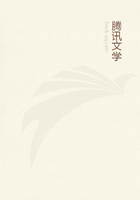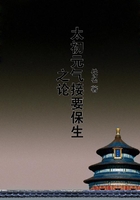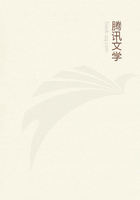It is remarkable that in a neighbouring country, we have recently seen similar effects follow from similar causes. The revolution of July 1830 established representative government in France. The men of letters instantly rose to the highest importance in the State. At the present moment most of the persons whom we see at the head both of the Administration and of the Opposition have been professors, historians, journalists, poets. The influence of the literary class in England, during the generation which followed the Revolution, was great, but by no means so great as it has lately been in France. For in England, the aristocracy of intellect had to contend with a powerful and deeply-rooted aristocracy of a very different kind. France had no Somersets and Shrewsburys to keep down her Addisons and Priors.
It was in the year 1699, when Addison had just completed his twenty-seventh year, that the course of his life was finally determined. Both the great chiefs of the Ministry were kindly disposed towards him. In political opinions he already was what he continued to be through life, a firm, though a moderate Whig.
He had addressed the most polished and vigorous of his early English lines to Somers, and had dedicated to Montague a Latin poem, truly Virgilian, both in style and rhythm, on the peace of Ryswick. The wish of the young poet's great friends was, it should seem, to employ him in the service of the Crown abroad.
But an intimate knowledge of the French language was a qualification indispensable to a diplomatist; and this qualification Addison had not acquired. It was, therefore, thought desirable that he should pass some time on the Continent in preparing himself for official employment. His own means were not such as would enable him to travel: but a pension of three hundred pounds a year was procured for him by the interest of the Lord Chancellor. It seems to have been apprehended that some difficulty might be started by the rulers of Magdalen College.
But the Chancellor of the Exchequer wrote in the strongest terms to Hough. The State--such was the purport of Montague's letter--could not, at that time spare to the Church such a man as Addison. Too many high civil posts were already occupied by adventurers, who, destitute of every liberal art and sentiment, at once pillaged and disgraced the country which they pretended to serve. It had become necessary to recruit for the public service from a very different class, from that class of which Addison was the representative. The close of the Minister's letter was remarkable. "I am called," he said, "an enemy of the Church. But I will never do it any other injury than keeping Mr. Addison out of it."
This interference was successful; and, in the summer of 1699, Addison, made a rich man by his pension, and still retaining his fellowship, quitted his beloved Oxford, and set out on his travels. He crossed from Dover to Calais, proceeded to Paris, and was received there with great kindness and politeness by a kinsman of his friend Montague, Charles Earl of Manchester, who had just been appointed Ambassador to the Court of France. The Countess, a Whig and a toast, was probably as gracious as her lord; for Addison long retained an agreeable recollection of the impression which she at this time made on him, and in some lively lines written on the glasses of the Kit-Cat Club, described the envy which her cheeks, glowing with the genuine bloom of England, had excited among the painted beauties of Versailles.
Lewis the Fourteenth was at this time expiating the vices of his youth by a devotion which had no root in reason, and bore no fruit of charity. The servile literature of France had changed its character to suit the changed character of the prince. No book appeared that had not an air of sanctity. Racine, who was just dead, had passed the close of his life in writing sacred dramas; and Dacier was seeking for the Athanasian mysteries in Plato. Addison described this state of things in a short but lively and graceful letter to Montague. Another letter, written about the same time to the Lord Chancellor, conveyed the strongest assurances of gratitude and attachment. "The only return I can make to your Lordship," said Addison, "will be to apply myself entirely to my business." With this view he quitted Paris and repaired to Blois, a place where it was supposed that the French language was spoken in its highest purity, and where not a single Englishman could be found. Here he passed some months pleasantly and profitably. Of his way of life at Blois, one of his associates, an Abbe named Philippeaux, gave an account to Joseph Spence. If this account is to be trusted, Addison studied much, mused much, talked little, had fits of absence, and either had no love affairs, or was too discreet to confide them to the Abbe. A man who, even when surrounded by fellow-countrymen and fellow-students, had always been remarkably shy and silent, was not likely to be loquacious in a foreign tongue, and among foreign companions. But it is clear from Addison's letters, some of which were long after published in the Guardian, that, while he appeared to be absorbed in his own meditations, he was really observing French society with that keen and sly, yet not ill-natured side glance, which was peculiarly his own.
From Blois he returned to Paris; and, having now mastered the French language, found great pleasure in the society of French philosophers and poets. He gave an account, in a letter to Bishop Hough, of two highly interesting conversations, one with Malbranche, the other with Boileau. Malbranche expressed great partiality for the English, and extolled the genius of Newton, but shook his head when Hobbes was mentioned, and was indeed so unjust as to call the author of the Leviathan a poor, silly creature. Addison's modesty restrained him from fully relating, in his letter, the circumstances of his introduction to Boileau.















